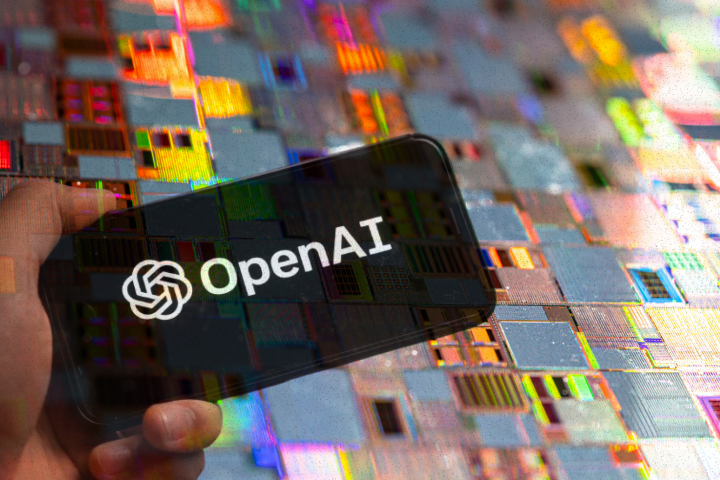The UK is launching a mandatory digital ID for Right to Work checks by the end of this Parliament, stored on your phone like the NHS app.
A cyber gang called Radiant stole data on 8,000 children from London nurseries and posted details of 10 online.
Meta rolls out ad-free Facebook and Instagram in the UK for £2.99 to £3.99 per month.
And Britain’s biggest banks are piloting tokenised deposits on blockchain, despite Bank of England warnings.
Meanwhile, Mercedes spins off chip team Athos Silicon to power self-driving cars. YouTube Music tests AI hosts that narrate songs with trivia and stories.
China’s YMTC moves into DRAM and HBM to fuel its AI ambitions. And Apple builds internal “Veritas” app to test its long-awaited Siri overhaul.
All that and more. Let’s dive in…
DRIVING THE CONVERSATION TODAY
UK to roll out mandatory digital ID by end of Parliament
The UK government has unveiled a new free digital ID scheme that will become mandatory for Right to Work checks by the end of the current Parliament.
Prime Minister Keir Starmer said the system, available to all citizens and legal residents, will live on smartphones, functioning like the NHS app or contactless payments, and will eliminate paper-based identity verification.
The ID will simplify access to driving licences, childcare, welfare, and tax services while helping authorities crack down on forged documents and illegal working, a key driver of small boat crossings.
Inspired by systems in Estonia, Denmark, and Australia, the platform will use encryption and biometric verification, with strict limits on data sharing. A public consultation will launch later this year, and outreach support will be provided for digitally excluded groups.
Hackers leak children’s data from London nurseries
Cybercriminal gang Radiant has claimed responsibility for stealing sensitive data on more than 8,000 children from Kido International, which operates 18 nurseries across London. The group posted names, photos, addresses, and family contact details of 10 children on the dark web as proof and threatened to release more.
The Metropolitan Police confirmed its Cyber Crime Unit is investigating but has made no arrests. Radiant, allegedly based in Russia, said it infiltrated Kido’s networks for weeks but did not disclose ransom demands.
The attack is part of a surge in ransomware incidents hitting UK businesses, from Jaguar Land Rover suppliers to Collins Aerospace, and has sparked alarm over child safety and data governance.
Meta launches ad-free Facebook and Instagram in UK
Meta will soon offer UK users an ad-free subscription for Facebook and Instagram at £2.99 per month on web and £3.99 on mobile. The move mirrors EU offerings introduced to comply with privacy regulations and follows scrutiny from Britain’s data protection authority over ad targeting.
Meta said subscribers’ data will not be used for advertising, giving users a clear choice: pay for privacy or use the free, ad-supported version. The shift comes as Apple and Google also adapt to stricter privacy rules, but Meta’s challenge is acute, given that 98 percent of its $164.5 billion 2023 revenue came from ads.
Britain’s banks pilot tokenised deposits on blockchain
HSBC, NatWest, Lloyds, Barclays, Nationwide, and Santander are moving ahead with a pilot to launch tokenised deposits, digital versions of customer funds stored on blockchain. Coordinated by UK Finance, the trial will run until mid-2026 and test use cases like online payments, remortgaging, and digital asset settlement.
Bank of England Governor Andrew Bailey has warned against unregulated stablecoins but supports tokenised deposits as safer and more stable.
HSBC’s global payments head Manish Kohli said cross-border transactions show the strongest client demand. UK Finance stressed the model keeps innovation within the regulated banking framework.
FUNDING FLASH
Synthesized raises $20 million to automate AI software testing
London- and New York-based startup Synthesized has raised $20 million in Series A funding led by Redalpine Venture Partners, with IQ Capital, Mercia Ventures, UBS, Seedcamp, and Deutsche Bank participating.
The company automates software testing by generating realistic test data and environments, critical for both traditional code and AI-generated “vibe coding.” Customers like Deutsche Bank have cut QA costs by 40 percent and halved test data retrieval time. Synthesized’s tools run on clients’ own infrastructure to preserve security. The startup plans to double its 35-person team and expand across North America and Europe.
North West Mutual to launch as full bank in 2027
Preston-based North West Mutual (NW Mutual) is on track to become a fully licensed bank in early 2027, aiming to reverse the loss of banking access in the North West, where 70 percent of branches have closed in the past decade.
It will offer personal and SME accounts, mortgages, overdrafts, and a fee-free “FairPay” transfer product. Digital services will complement physical access. The startup has secured seed funding, including from Preston City Council, and plans to hire 200 staff.
STILL DEVELOPING
Mercedes spins off Athos Silicon for next-gen auto chips
Mercedes-Benz has spun off its Silicon Valley chip team into Athos Silicon, a new Santa Clara-based company developing energy-efficient processors for self-driving cars, drones, and EVs. Athos inherits five years of R&D and intellectual property from Mercedes, which remains a minority shareholder.
CEO Charnjiv Bangar said the startup uses “chiplet” technology to package tiny chip components, delivering autonomous-grade reliability while using 10 to 20 times less power than traditional systems. Athos plans to raise venture capital and supply the broader auto industry, not just Mercedes.
YouTube Music tests AI hosts with song commentary
YouTube Music is testing AI-powered music hosts that deliver trivia, stories, and commentary tied to the songs you’re listening to. Available to select U.S. users via YouTube Labs, the feature echoes Spotify’s AI DJ and builds on earlier conversational radio experiments.
YouTube Labs, open to all without a Premium subscription, serves as the company’s sandbox for AI innovation, alongside generative AI for Shorts, AI search carousels, and chat assistants. At the same time, YouTube is tightening rules against “inauthentic” mass-produced content.
Meta launches “Vibes,” AI-generated short videos
Meta has launched “Vibes”, a new feed of AI-generated short videos in its Meta AI app and on meta.ai. Announced by Mark Zuckerberg with clips of cats baking and ancient Egyptians taking selfies, Vibes lets users create, remix, and share AI videos with music and effects.
Partners include Midjourney and Black Forest Labs, though Meta is building its own models. User reactions have been harsh, with many calling it “AI slop.” The rollout comes as Meta pushes to catch up with OpenAI and DeepMind, even as it urges creators to focus on “authentic storytelling.”
EQUALLY IMPORTANT
Trump admin considers chip-based tariffs on electronics
The Trump administration is weighing a new tariff plan that would tax imported electronics based on the number and value of semiconductor chips they contain. Under the proposal, the Commerce Department would estimate chip content and apply tariffs as a percentage of that value.
Affected products could range from electric toothbrushes to high-end laptops. A White House spokesperson said the goal is to reduce reliance on foreign semiconductors and bring manufacturing back to the U.S. through tariffs, tax cuts, deregulation, and energy expansion. The Commerce Department has not commented.
Intel hikes Raptor Lake CPU prices amid weak AI-PC demand
Intel plans to raise prices on its 13th-generation Raptor Lake processors by over 10 percent, according to Digitimes, as weak demand for newer AI-focused PCs leaves older chips piling up in inventory. CPUs that sold for $150 to $160 may rise to $170 to $180.
Consumers are sticking with cheaper, non-NPU CPUs, avoiding pricier DDR5 memory and lukewarm-reception Arrow and Lunar Lake chips. While Windows 10 support ends in October 2025, analysts say retail demand won’t rebound without holiday discounts.
China’s YMTC moves into DRAM and HBM production
Chinese NAND leader YMTC is expanding into DRAM and high-bandwidth memory (HBM) to address shortages slowing domestic AI development. The company is building DRAM lines and advancing through-silicon via stacking to assemble HBM packages, reducing reliance on restricted U.S. supplies.
Working with DRAM specialist CXMT and centered in Wuhan, YMTC aims to support firms like Huawei, which is developing in-house HBM for its Ascend chips. With HBM demand forecast to more than double by 2026, any local supply will be quickly absorbed.
TSMC says AI cuts AI chip energy use by 10x
TSMC announced that its AI-driven chip design tools have improved energy efficiency of AI processors by roughly tenfold. Using AI software, TSMC can optimize multi-chiplet packages in minutes instead of days, significantly reducing power waste in data centers, where flagship servers can draw up to 1,200 watts.
Rumors swirl over TSMC investment in Intel
Speculation is growing that TSMC may invest in Intel, following Nvidia’s reported $50 billion stake, SoftBank’s $20 billion injection, and Apple’s rumored interest. Analysts note the tension: TSMC is both Intel’s foundry partner and competitor.
TSMC CEO Wei Zhejia said the company is not negotiating joint ventures or tech transfers. Any deal would likely tie into U.S. efforts to allocate 30 percent of TSMC’s 2nm+ output to Arizona, boosting domestic semiconductor capacity.
Momenta eyes $6 billion valuation in new funding round
Chinese autonomous driving startup Momenta is raising a new round that could value it at $6 billion. The Beijing-based firm provides lane-change and driver-assist software to Mercedes-Benz and BMW for EVs in China, with Mercedes planning to equip 40 models.
Investors include Tencent, Temasek, SAIC, Toyota, and Mercedes-Benz. Momenta competes with Horizon Robotics, WeRide, and Pony.ai and may pursue an IPO, potentially shifting from New York to Hong Kong.
U.S. judge rules against DJI in military designation case
A U.S. federal judge has ruled against drone maker DJI in its lawsuit challenging its DoD label as a “Chinese military company.” Judge Paul Friedman said the DoD provided sufficient evidence of military applications, regardless of DJI’s policies.
DJI argued the designation caused “ongoing financial and reputational harm” and could restrict access to contracts and loans. The company, already on the Commerce Entity List, now faces a potential U.S. import ban by year-end.
Apple tests “Veritas” app for Siri overhaul
Apple has built an internal “Veritas” app, a ChatGPT-inspired tool for employees to test next-gen Siri features. The app enables searching personal data like emails, editing photos within apps, and experimenting with chatbot-style interactions.
The development signals progress on Siri’s delayed 2026 relaunch, which may combine Apple’s own AI models with third-party systems. Apple is reportedly in talks with Google after considering OpenAI and Anthropic, marking a major step toward the context-aware assistant first previewed at WWDC 2024.












